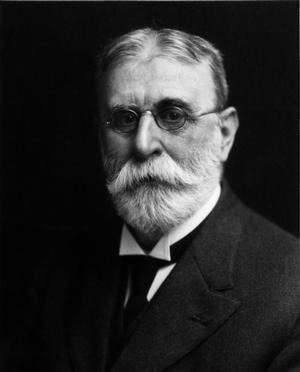B. B. Warfield -- "The Christ That Paul Preached"
B. B. Warfield is always worth reading. This essay, published in The Expositor in 1918, is a great example of Warfield’s erudition and his passion for the gospel.
Warfield writes,
Paul is writing the Address of his Epistle to the Romans, then, with his mind fixed on the divine dignity of Christ. It is this divine Christ who, he must be understood to be telling his readers, constitutes the substance of his Gospel-proclamation. He does not leave us, however, merely to infer this. He openly declares it. The Gospel he preaches, he says, concerns precisely “the Son of God . . . Jesus Christ our Lord.” He expressly says, then, that he presents Christ in his preaching as “our Lord.” It was the divine Christ that he preached, the Christ that the eye of faith could not distinguish from God, who was addressed in common with God in prayer, and was looked to in common with God as the source of all spiritual blessings. Paul does not speak of Christ here, however, merely as “our Lord.” He gives Him the two designations: “the Son of God . . . Jesus Christ our Lord.” The second designation obviously is explanatory of the first. Not as if it were the more current or the more intelligible designation. It may, or it may not, have been both the one and the other; but that is not the point here. The point here is that it is the more intimate, the more appealing designation. It is the designation which tells what Christ is to us. He is our Lord, He to whom we go in prayer, He to whom we look for blessings, He to whom all our religious emotions turn, on whom all our hopes are set—for this life and for that to come. Paul tells the Romans that this is the Christ that he preaches, their and his Lord whom both they and he reverence and worship and love and trust in. This is, of course, what he mainly wishes to say to them; and it is up to this that all else that he says of the Christ that he preaches leads.
The other designation— “the Son of God” —which Paul prefixes to this in his fundamental declaration concerning the Christ that he preached, supplies the basis for this. It does not tell us what Christ is to us, but what Christ is in Himself. In Himself He is the Son of God; and it is only because He is the Son of God in Himself, that He can be and is our Lord. The Lordship of Christ is rooted by Paul, in other words, not in any adventitious circumstances connected with His historical manifestation; not in any powers or dignities conferred on Him or acquired by Him; but fundamentally in His metaphysical nature. The designation “Son of God” is a metaphysical designation and tells us what He is in His being of being. And what it tells us that Christ is in His being of being is that He is just what God is.
Warfield summarizes the implications of this . . .
This is fundamentally, then, how Paul preached Christ—as the Son of God in this supereminent sense, and therefore our divine Lord on whom we absolutely depend and to whom we owe absolute obedience. But this was not all that he was accustomed to preach concerning Christ. Paul preached the historical Jesus as well as the eternal Son of God. And between these two designations—Son of God, our Lord Jesus Christ—he inserts two clauses which tell us how he preached the historical Jesus. All that he taught about Christ was thrown up against the background of His deity: He is the Son of God, our Lord. But who is this that is thus so fervently declared to be the Son of God and our Lord? It is in the two clauses which are now to occupy our attention that Paul tells us.
If we reduce what he tells us to its lowest terms it amounts just to this: Paul preached the historical Christ as the promised Messiah and as the very Son of God. But he declares Christ to be the promised Messiah and the very Son of God in language so pregnant, so packed with implications, as to carry us into the heart of the great problem of the two-natured person of Christ. The exact terms in which he describes Christ as the promised Messiah and the very Son of God are these: “Who became of the seed of David according to the flesh, who was marked out as the Son of God in power according to the Spirit of holiness by the resurrection of the dead.” This in brief is the account which Paul gives of the historical Christ whom he preached.
Here’s the link to the entire essay, Warfield: "The Christ that Paul Preached"
